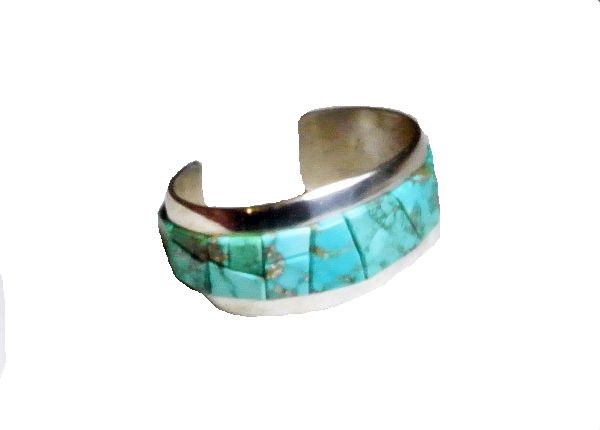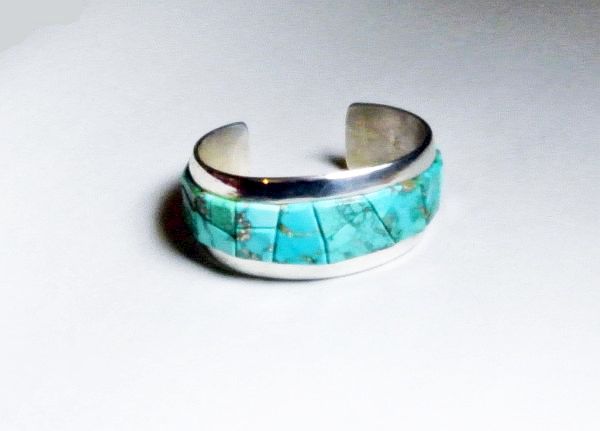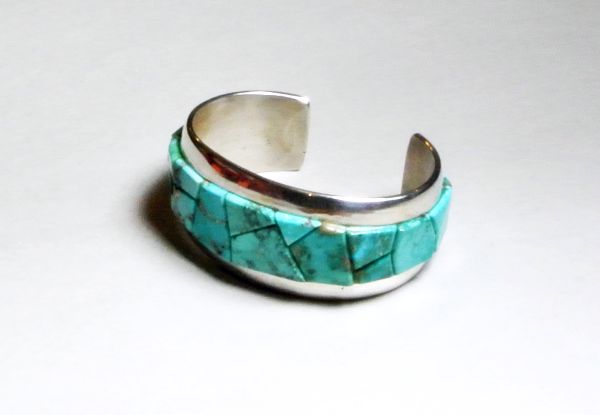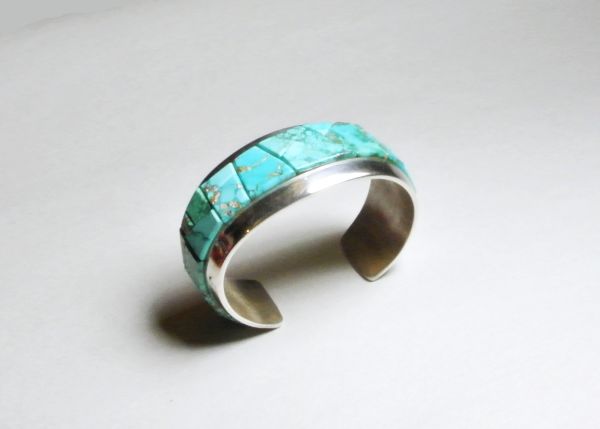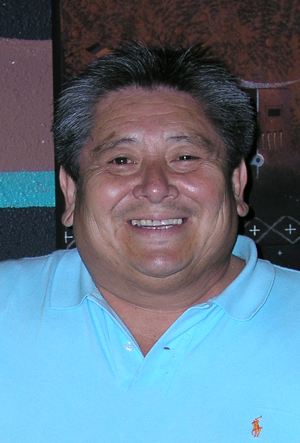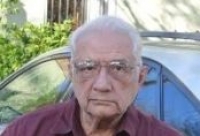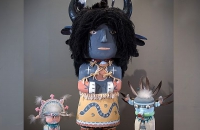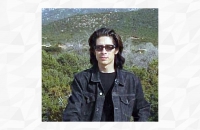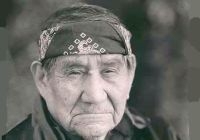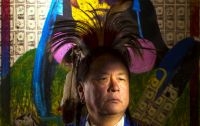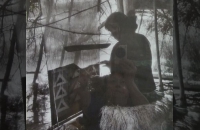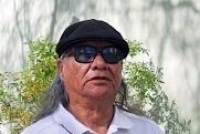J1509 Na Na Ping
Sterling silver cuff with turquoise mosaic inlay by Pascua Yaqui silversmith Michael Garcia (Na Na Ping). The 1 1/8” cuff has a 5/8” band with 21 mosaic turquoise in the center. The inside is 5 1/4” with a 1” gap. Signed Na Na Ping
Michael Garcia (Na Na Ping) has won first prize for jewelry in every major show throughout the southwest as well as internationally: Japan, Germany and Australia.
His pieces are shown at major museums, among them, the National Museum of the American Indian in Washington DC and New York, Museum of Northern Arizona, Heard Museum, Indian Pueblo Cultural Center and the Eiteljorg Museum of Germany.
About the artist
Michael Garcia (Na Na Ping)
Michael Garcia (Na Na Ping) was born in 1952 at the Pascua Yaqui village of Guadalupe just outside of Tempe Arizona where he is a registered member. After receiving a business degree from Arizona State University, inspired by his uncle’s (Charles Hernandez) lapidary work, he began his career in jewelry. Developing his skills over time, he began experimenting with cutting edge inlay using a wide range of semi-precious stones such as turquoise, variscite, sugalite, jade and other semi-precious stones. His fame developed from his unusual ability to combine many intricate cuts into a mosaic of color onto a wide and heavy sterling silver shank. This mosaic extends to the edge of the piece of jewelry, giving it a feel of floating atop without the sterling silver appearing in the field of the piece, much like you feel on the edge of an infinity pool.
After meeting his wife, a Nambe pueblo woman, her grandfather in a ceremony gave him the name Na Na Ping, the Tewa word meaning Aspen Mountain.
Today, Na Na Ping teaches jewelry design at the Poeh arts school in Pojaque Pueblo north of Santa Fe, New Mexico. He is the past president of the Indian Arts and Crafts Association based in Albuquerque, New Mexico and has served as Vice President of the prestigious Southwestern Association for Indian Arts. He is the recipient of the SWAIA Arlene Feddes fellowship award that recognizes excellence in Native American Art. He has won first prizes for jewelry in every major show throughout the southwest as well as internationally in Japan, Germany and Australia.
His pieces are shown at major museums, among them, the National Museum of the American Indian in Washington DC and New York, Museum of Northern Arizona, Heard Museum, Indian Pueblo Cultural Center and the Eiteljorg Museum of Germany.

88.jpg)
